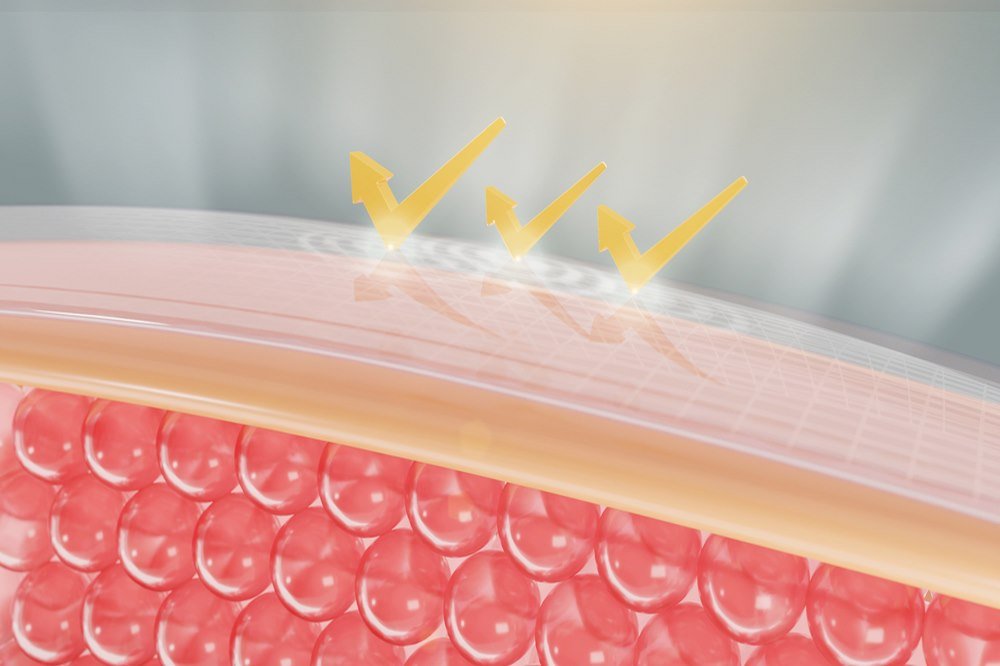Protective effects on skin

Vitamin C helps in the reduction of damage resulting by UV-light exposure. Although vitamin C does not act as a sunscreen as it cannot absorb UV light but the antioxidant properties of the vitamin help in protecting the skin from UV light damage. Vitamin C transport proteins increase in number in response to the UV light exposure. The increase in vitamin C transport proteins suggest a higher requirement for the uptake of vitamin C to provide adequate protection. There is addition of keratinocytes along with vitamin C to reduce damages resulting from UV light exposure and lipid peroxidation. Thus, limiting the secretion of pro-inflammatory cytokines and providing protection against apoptosis. Numerous studies suggest that vitamin C consumption alone cannot reduce the effect of UV light exposure.
However, a combination of vitamin E and C significantly elevates minimal erythemal dose (MED) that will induce a detectable erythema and reduces the erythema inducing blood flow to the damaged skin areas. Therefore, interactions between vitamin C and E may be essential to achieve protection against UV light. The topical application of creams containing vitamin C also increases the effect of UV exposure, skin wrinkling, and skin tumor. Vitamin C reduces the number of cells suffering sunburn, decreasing erythema response, and reduction in DNA damage induces the UV exposure. The combination of both the antioxidant vitamins i.e., also decreases the immunosuppressive effects of increasing MED, UV light exposure, and decreasing cell damage.
